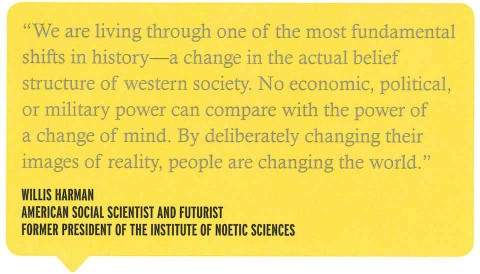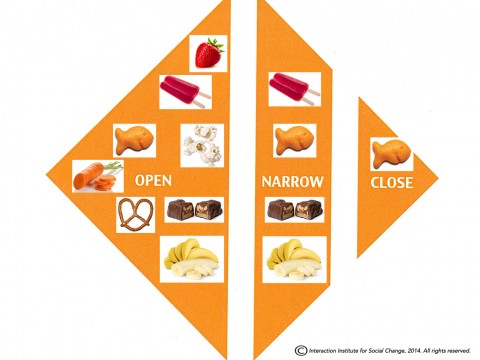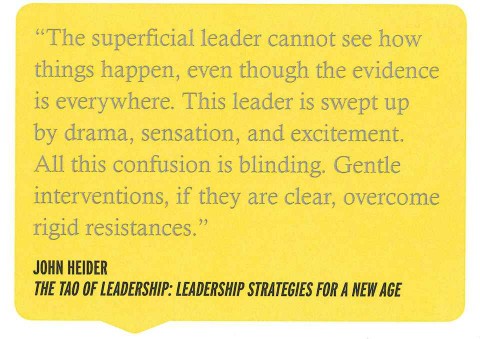Living Cities Takes Facilitative Leadership to Heart
July 9, 2014 1 CommentTwo recent graduates of a Facilitative Leadership for Social Change workshop Mistinguette Smith and I led in New York, Alison Gold and Juan Sebastian Arias from Living Cities, recently wrote to us about a creative way they are bringing the frameworks and tools they learned back to their organization. So many of you ask us for advice about how to apply this stuff that we thought you’d want to know about it too!
Alison writes, “We had a great turn out of more than half the staff at our first brown bag where we introduced our colleagues to ideas about improving our meetings. We held a ‘meeting within the meeting’ where we demonstrated an open-narrow-close to determine Living Cities’ ‘unofficial’ snack food (we landed on Goldfish crackers). We received really helpful feedback, had a chance to practice and teach what we had learned and have even seen our colleagues incorporating what they learned into their meeting agendas! We wanted to share this progress with you so you’d know how what you taught us is being used and spread throughout Living Cities! Thanks for the great training!”
Alison and Juan Sebastian used the framework we call Stages of a Discussion, a simple way to understand how a group of people go from a whole lot of possible ideas (open), to a narrowed down set of possibilities (narrow), to a solid agreement on which one(s) to move forward with (close). I love that Alison and Juan Sebastian used this framework to facilitate a meeting to determine Living Cities’ unofficial snack food. What a fun way to practice using some new facilitation tools and build the collaborative decision-making muscle of a group with a relatively low stakes decision (although I must admit that a decision about snack food is not always low stakes!). While choosing a snack food might seem low stakes, building agreements that stick and that are truly backed by the individuals who made those agreements together are not easy. This is why practicing is so important!
What is Facilitative Leadership for Social Change and why does it matter? Thousands of people doing social change work around the globe on every issue you can imagine have come through this workshop over the last two decades. We define facilitative leaders as those who “inspire and create the conditions for self-empowerment so that people can work together to achieve a common goal.” Workshop participants get to practice using a set of practical frameworks and tools to this end. We like to call this stuff “revolutionary common sense” because while it may seem simple, this kind of leadership requires ongoing practice, a deep self-awareness, and continued cultivation of the respect for the wisdom of those around us.
- Mistinguette recently wrote, “There are lots of workshops that help leaders to learn about decision making; there are few that require a decision-making process to be informed by our hearts as well as our minds.”
- As Curtis has said, “In times of stress, traditional leadership tends to suck up responsibility, away from the system, and thereby cheats the system of critical adaptive capacity. It takes greater effort (foresight, resolve, self-awareness, humility, etc.) for leadership to admit that it doesn’t know, resist fight or flight tendencies, and enlist the more vast intelligence of the system to respond. Enter Facilitative Leadership. Facilitative Leadership is grounded in this notion of ‘condition creation,’ specifically the conditions that enable groups of people to self-empower or self-organize to realize shared goals. This includes creating conditions in which agents can offer their unique systemic perspectives and talents, speak up when they observe threats or opportunities, take initiative, make appropriate decisions, work with others, and share overall responsibility for the health (survival, evolution, purpose realization) of the system.”
As I write this blog post, Alison and Juan Sebastian are planning a second brown bag at Living Cities about balancing three interdependent dimensions of success: results, process, and relationships. If you are a Facilitative Leadership graduate, we’d love to hear what you’ve tried out and how it’s going!




1 Comment
Love the story and the graphic! Keep up the good work at Living Cities!